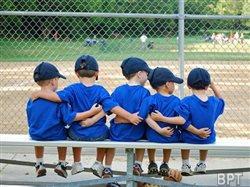Make sportsmanship part of your child’s (and your) game plan
(BPT) - You’ve probably been to a youth sporting event when an argument broke out between coaches and parents. Or maybe you’ve watched youth athletes refuse to help one another up or congratulate an opponent on a great play.
And you wonder where has sportsmanship gone?
A new effort by Liberty Mutual Insurance’s Play Positive program looks to renew the spirit of sportsmanship and remind youth sports coaches and parents of the importance of this life lesson. Parents and coaches are asked to take the Play Positive Pledge to promote good sportsmanship. Taking the pledge could even help your youth sports team or organization earn $2,500 toward providing a better youth sports experience.
Recently, a survey of 2,000 youth sports parents and coaches conducted by Liberty Mutual Insurance revealed shocking statistics about the decline in sportsmanship in youth sports, underscoring the need for a stronger emphasis.
According to the survey:
* 50 percent of parents and coaches believe that sportsmanship has worsened in youth sports since they participated as children (while only 12 percent think it has improved).
* According to both parents and coaches, learning “teamwork” and “sportsmanship” are the two most important aspects of participating in youth sports.
* 26 percent of parents say they have witnessed a verbally abusive coach, and 16 percent say they have witnessed a confrontation between parents.
* 55 percent of coaches have experienced parents yelling negatively at officials or their own kids, and two in five have experienced parents yelling negatively at other kids.
So how do parents and coaches stop this trend and improve sportsmanship for the next generation? It starts with teaching children the value of sportsmanship. Seventy-five percent of parents and coaches say that teaching sportsmanship is the responsibility of parents. If you want to help your child learn the value of good sportsmanship and playing with a positive attitude, follow these tips:
* Play with integrity. One of the most essential lessons a child can learn from sports is to follow the rules. Make sure your children understand the rules and don’t break them, even if they have the opportunity to get away with it.
* Respect the officials. It’s important that youth athletes – as well as parents and coaches – learn to respect referees and officials. Showing respect for the officials will set a good example for your children. Remember, they are always watching and learning from you.
* Be a good sport. This means teaching your child to do what they can to lift up their teammates. Teach them that being a good teammate also means being a good person on and off the field regardless of the outcome.
* Maintain self-control. Help your child learn to keep their cool, have a positive attitude and avoid overreacting during practices or games.
* Let the coaches coach. Avoid chiming in with your coaching advice for the team or other parents. Let those in charge run the plays. This will help your children learn to respect their coaches and the coaches’ decisions.
“Growing up as a youth athlete, my coaches and parents were constantly using examples of poor behavior on the field as an opportunity to teach me about the importance of sportsmanship,” says actor Chris O’Donnell, Liberty Mutual Insurance Play Positive ambassador. “Those lessons have stuck with me over the years, and now as a father of children involved in youth sports, I know the opportunity lies with us as parents to have the conversation and reinforce this important life lesson."
You can learn more about Liberty Mutual Insurance’s Play Positive program find helpful tips and resources for teaching your children lifelong sportsmanship skills and take the Play Positive Pledge by visiting www.PlayPositive.com.







